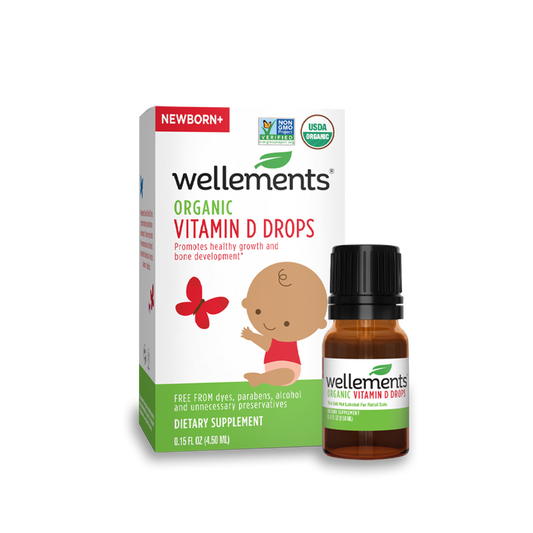Vitamin D & Baby Formula - Everything You Need to Know as a Mom
| updated:Share

As a mom, you want to do what is best for your little one at every point of their young life. While “what is best” may vary from parent to parent, there are a few non-negotiables, especially regarding nutrition. Whether you’re a “breast is best” or “fed is best” type of mom, there is no getting around the fact that your baby needs certain vitamins. One of the most essential vitamins at every stage of life is vitamin D, which your little one can get via baby formula and breast milk.
Importance of Vitamin D
Vitamin D itself does not provide any health benefits. Instead, it helps the body draw essential nutrients — calcium and phosphate — from foods and beverages to strengthen bones and boost muscle health. It also assists with cell division and immune function.
Vitamin D Deficiency
Vitamin D deficiency occurs when a person does not receive enough vitamin D from the foods they eat and/or sunlight. Vitamin D deficiency, if not corrected early enough, can cause bone density and muscle mass issues. Chronic and severe vitamin D deficiency can lead to more serious problems, such as dips in blood pressure, demineralization of the bones, and rickets. Signs you may be deficient in vitamin D are as follows:
- Dental deformities
- Muscle cramps
- Bone pain
- Increased fractures
If you suspect you are vitamin D deficient during or post-pregnancy, you must work with your doctor to correct it immediately.

Vitamin D & Pregnancy
Vitamin D during pregnancy is essential for a couple of reasons. For starters, as your baby grows, they will take much of the nutrients from the foods you eat for their development. You may become vitamin deficient if you are not consuming between 25% to 50% more than the daily recommended value of nutrients. Not only can this lead to health complications for you — including preeclampsia — but also, it could cause developmental issues for your baby.
The second reason it is essential to monitor your vitamin D intake during pregnancy is that it can support your baby’s healthy development. Severe maternal vitamin D deficiency is associated with rickets, disordered skeletal homeostasis, and fractures in newborns.
You can get vitamin D from many foods, including dairy products, salmon, egg yolks, and fortified cereals and juices. However, it can be difficult to consume as much vitamin D as is necessary during pregnancy from foods alone. For this reason, many OBGYNs recommend that expectant mothers take a vitamin D supplement.
Vitamin D & Formula Fed Babies
It is just as crucial during post-pregnancy to keep your vitamin D intake up as during pregnancy. This is especially true if you plan to breastfeed.
Much of the vitamin D for babies comes from their mother’s milk. Naturally, if you are vitamin deficient, your little one will not get the nutrients they need to develop healthily. If your doctor determines you are vitamin D deficient, they may recommend a vitamin D supplement for you and your little one.
Vitamin D for formula-fed babies is easier to come by as manufacturers fortify their formulas to include the recommended amounts. However, babies must consume about four bottles of formula daily to get the recommended amount of vitamin D. If your baby is not a big eater, consider looking into a liquid vitamin D supplement.
4.1 /
5.0
(90)
90
total reviews
Vitamin D Drops
Sale price
$11.99
Vitamin D is a vital nutrient regardless of which stage of life your baby is in. To ensure they receive the recommended amount, consult your doctor about how to boost your intake during pregnancy and keep your baby’s intake up post-pregnancy.



